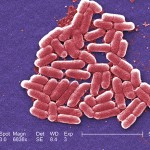FDA intends to pursue criminal investigations against any food company executives or quality assurance (QA) managers involved in cases in which a link is made between a positive sample collected by the agency from a food facility or product and a foodborne illness.
In fact, the agency and the U.S. Department of Justice just announced that they will be working together to aggressively enforce food safety laws, including the Food, Drug and Cosmetic Act. In prepared remarks at a food safety conference last week, Benjamin C. Mizer, principal deputy assistant attorney, indicated that criminal prosecution of food companies is a priority moving forward. “When it comes to food safety, we have to rely on the companies who manufacture and distribute food to ensure that the food we buy is safe,” Mizer stated in his remarks. “That is why food safety is a priority for the Justice Department. Our role in protecting consumer safety is at its apex when consumers can least protect themselves.”
In addition, the FDA is exercising nearly limitless authority to access company records during an inspection and investigation—and in many cases doing so without a warrant.
The Park Doctrine. In 1975, the Park Doctrine solidified FDA’s authority to criminally charge corporate executives and high-level managers. The Supreme Court upheld the conviction of the president of a major grocery chain who was found to be criminally liable for unsanitary conditions existing in a company distribution center, notwithstanding the argument that he had delegated the responsibility for maintaining the cleanliness of the site to his subordinates. The Supreme Court concluded that if a company ships adulterated food, the management of that company can be charged, even if they have no direct knowledge or intent. Under this standard, a food industry executive or QA manager can be sentenced to prison if he or she is aware of a circumstance or condition within his or her facility that could lead to a foodborne illness and fails to take action to correct it. If charged with this type of misdemeanor, the executive could be sentenced to up to a year in prison and a $250,000 fine for each count. On a case-by-case basis, FDA will consider the individual’s position within the company, his or her relationship to the violation, and whether in fact he or she was in a position (or had the authority) to correct the violation. The government is demonstrating that it intends to use criminal sanctions to create a deterrent and compel compliance.
Peanut Corporation of America (PCA): Salmonella outbreak (2008). PCA owner Stewart Parnell was sentenced to 28 years in prison for knowingly selling peanut products contaminated with Salmonella. His brother, a peanut broker, was sentenced to 20 years, and Parnell’s QA manager was sentenced to five years.
Quality Egg: Salmonella outbreak (2010). Quality Egg distributed products linked to a Salmonella outbreak that sickened more than 1,000 people. Company executives did not know that their products were sickening consumers but were nevertheless cited by FDA for failing to control Salmonella in the growing and processing environment. When the outbreak was over, FDA conducted a criminal investigation, and company executives were sentenced to three months in jail and slapped with significant fines for food safety violations.
Learn new and innovative approaches to Listeria detection & control at Food Safety Tech’s workshop | May 31–June 1, 2016 | St. Paul, MN | LEARN MOREJensen Farms: Listeria monocytogenes (2011). The company distributed cantaloupe contaminated with Listeria monocytogenes and, over a two-month period, the tainted product sickened nearly 150 people and killed more than 30. Company owners were unaware of product contamination, but federal prosecutors brought criminal charges against the company regardless, arguing that Jensen Farms failed to take appropriate steps to reduce Listeria contamination in its facility. Company owners were sentenced to five years’ probation, six months’ home detention, 100 hours of community service, and assessed individual fines of $150,000.
ConAgra: Salmonella (2006–2007). In 2014 FDA urged criminal charges be brought against ConAgra for distributing Salmonella-contaminated peanut butter, which sickened about 700 people, between 2006 and 2007. The company pled guilty to the charges and paid more than $11 million infines.
On May 2, 2014 FDA announced its intent to pursue “[c]riminal prosecution for falsifying records, lying to FDA, knowingly putting consumers at risk, or in other appropriate cases.”
Blue Bell: Listeria monocytogenes (2010–2015). In 2015, Blue Bell Creameries was linked to an outbreak in which FDA connected positive samples from those taken at retail and those taken at production facilities to seven case patients in the CDC database who carried the same strain of Listeria. Last year the agency urged the company to recall all of its products. What’s most concerning about the investigation is the fact that the first people who became sick fell ill more than five years ago (January 2010); two more illnesses were recorded in 2011, followed by one in 2012, and three in 2014. The final illness was reported January 2015.
The U.S. Department of Justice (DOJ) confirmed that FDA and the DOJ are making criminal sanctions “a priority” when companies “fail to live up to their obligations to protect the safety of the food that all of us eat.” The DOJ, working with FDA, has served federal grand jury subpoenas to Blue Bell, and is likely scanning food company records and executive emails to justify any criminal charges. If criminal charges are indeed brought against Blue Bell, FDA will likely argue that the company was periodically finding LM in its facilities over the past five years and failed to take sufficient action to correct the condition, which (as proven by the seven matching cases in PulseNet ), resulted in human illness. Although this seems like an extreme approach, given the ubiquitous nature of LM, it is the approach the agency is aggressively pursuing.
Chipotle Mexican Grill: Norovirus (2015). For several months last year, Chipotle was unable to contain and manage numerous foodborne illness outbreaks. In a public filing the national restaurant chain confirmed that it received a federal grand jury subpoena from the DOJ in connection with a norovirus outbreak that occurred at a location in which more than 200 customers became ill.
According to reports, Chipotle executives became aware that numerous employees had reported being sick in August 2015, yet they waited a few days before informing the local health department of the illnesses and closing the restaurant. In turn, it appears that FDA and the DOJ initiated a criminal investigation and served the grand jury subpoenas in order to gain access to corporate emails and determine whether company executives waited “too long” after learning about the illnesses to take action. On January 28, officials from Chipotle confirmed that the restaurant chain was served with a subpoena that broadened the scope of the initial criminal investigation by the U.S. Attorney’s office for the Central District of California. This subpoena requires Chipotle to produce documents and information related to company-wide food safety matters dating back to January 1, 2013, and supersedes the subpoena served in December 2015 that was limited to a restaurant in Simi Valley, California. Although FDA is trying to uncover how the recent outbreaks occurred, the agency is also engaging in a broader “fishing expedition” to determine whether there is further justification to bring criminal sanctions as a result of any of the company’s broader food safety conduct.
Multiple Non-public Cases
The DOJ, in cooperation with FDA, is currently pursuing criminal investigations against many other companies connected to other reported illnesses. As these are ongoing investigations, the underlying facts cannot be disclosed publicly. However, the most important lesson to be learned is that food companies must be prepared to better control pathogens in their environment in order to protect themselves from criminal prosecutions. My subsequent column will discuss these strategies.











